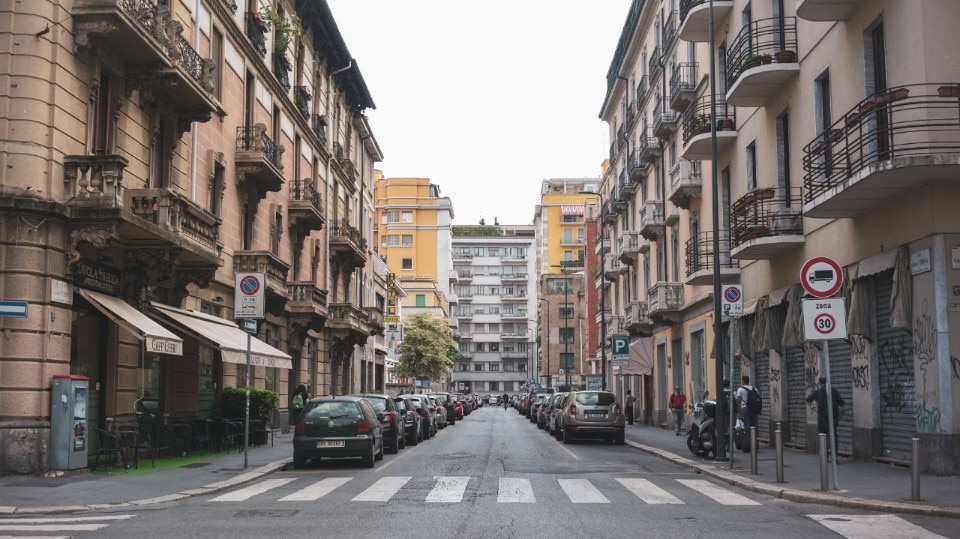After Bologna, Milan could be the second Italian city to adopt substantial measures to reduce car speed limits, following urban traffic plans already launched in other European capitals, such as Paris, Helsinki or Brussels. On Jan. 9, in fact, the city council of the Lombard metropolis approved a majority agenda calling on the mayor, Beppe Sala, and his council to proclaim Milan “Città 30”, establishing the new limit from Jan. 1, 2024. The city will become passable at the maximum speed of 30 km/h for almost 90 percent of its streets-currently only 15 percent of roads are speed restricted-with the exceptions of expressways, where people will still be able to go 50 km/h.
Supported by a special budget, the plan to transform city traffic in addition to following the metropolis’ green transition is also designed to reduce traffic accidents and result in fewer road deaths. More than 70 percent of accidents in Italy occur in cities, according to Aci-Istat data, and among the top causes is speeding.
For the moment there is nothing definite yet, however, the first controversies have also been slow to arrive. “I remind the mayor and the PD that in Milan people would also like to work,” Senator Matteo Salvini of the League commented: his party is in the opposition in Milan. Some gradualism is what there should be according to governor of Lombardy Attilio Fontana, also from the League. “I think there are some roads that deserve to be limited to 30 km per hour,” he wrote, “because there are schools and hospitals, and there are sensitive buildings where it is right that there should be special attention. But throughout the rest of the city perhaps the 50 km limit I think might be more useful to avoid the risk of traffic gridlock. There should be more gradualness.”
At the moment, the one approved by the City Council with the agenda remains an indication that the junta will have to implement with ordinances and an ad hoc resolution. The positive opinion to the measure has already arrived but the road to apply it will not be short, nor simple because all the city signage will have to be changed and the offices will have to get to work to assess situations street by street.
Opening image: Milan, Italy. Photo Kadir Celep via Unsplash


